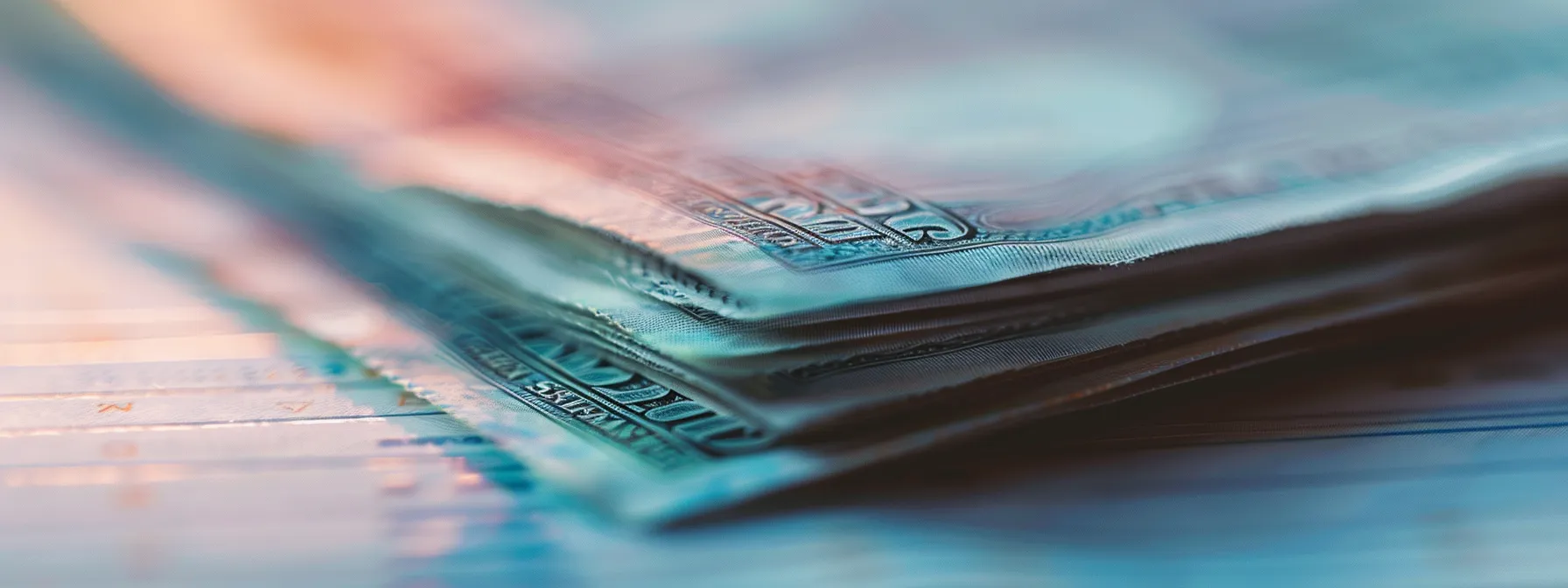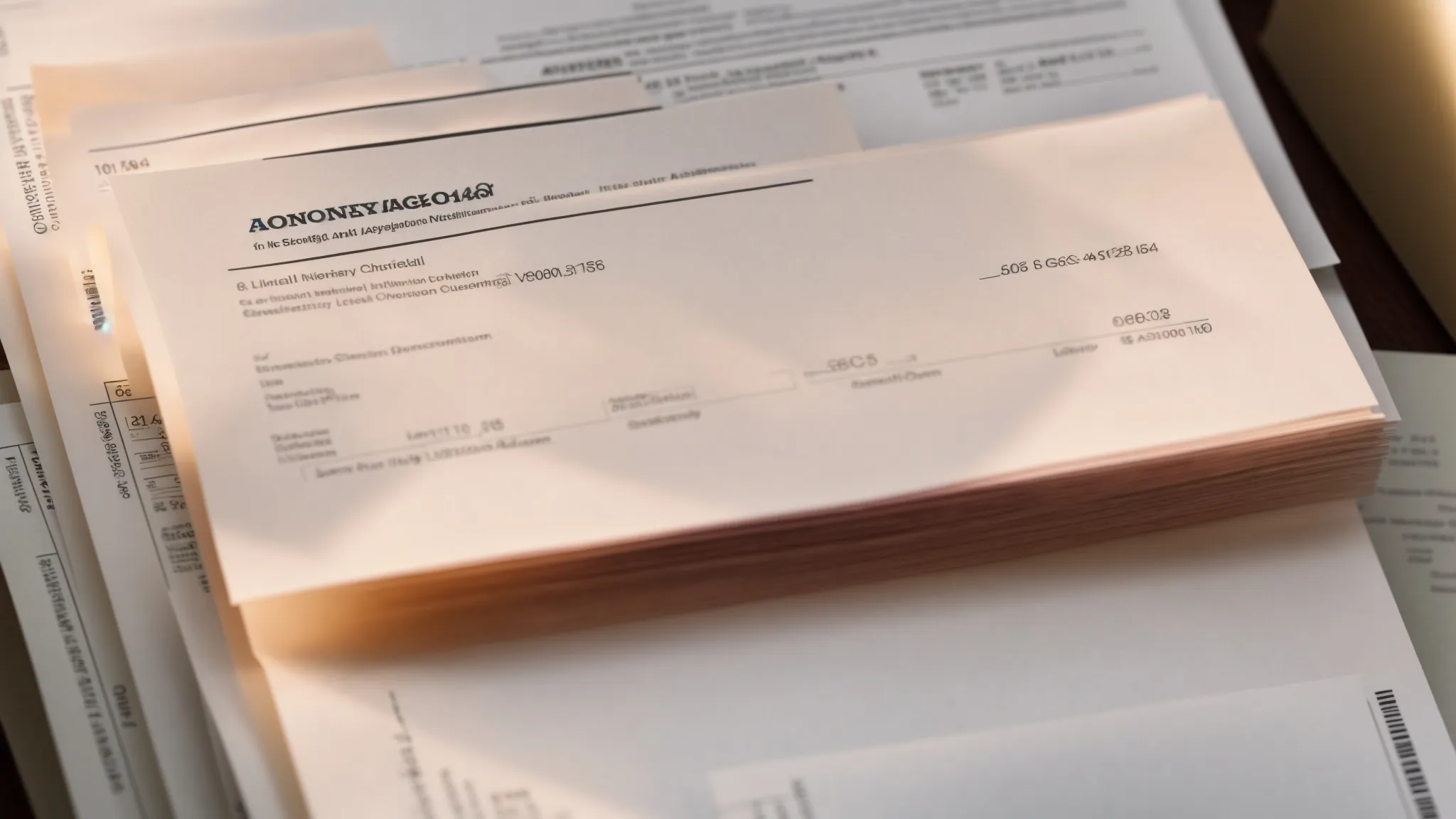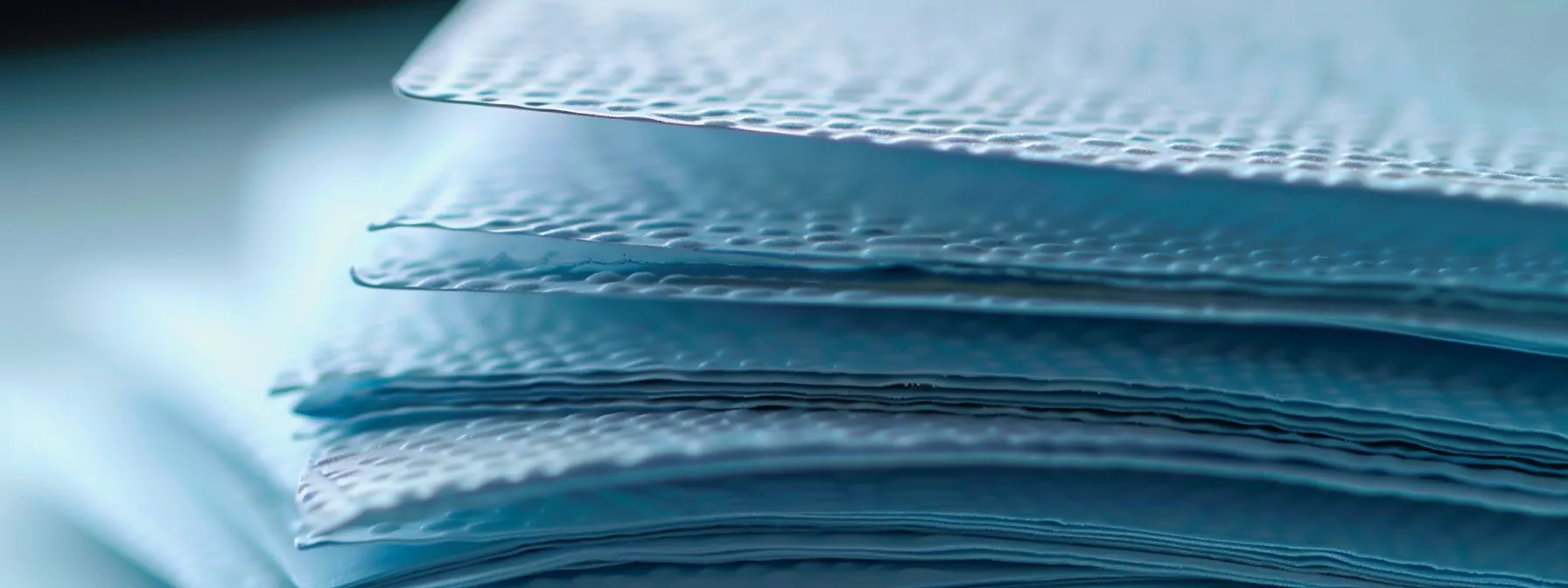The quality of cheque paper may seem like a minor detail, but it can significantly impact your business’s bottom line. Poor quality can lead to issues such as fraud and damage to your business’s reputation. This blog post will explore the importance of cheque paper quality, the financial implications it carries, and the connection between quality and your business’s image. By understanding these factors, readers will be better equipped to make informed choices, ultimately saving costs and enhancing security. Addressing this will help safeguard assets and ensure that every cheque issued retains its value and integrity.
Understanding Cheque Paper Quality and Its Importance

Cheque paper quality is defined by components such as thickness, texture, and security features, which directly impact its durability and usability. High-quality materials help reduce fees associated with rejected transactions and enhance customer trust, particularly in Ontario where credit rating matters. Understanding these factors is essential for making informed decisions about cheque purchases.
The Components That Define Cheque Paper Quality
The quality of cheque paper hinges on several critical components, including thickness and texture, which play essential roles in addressing client needs. A thicker paper generally offers better durability, reducing the likelihood of tears or damage during the processing of credit card transactions or when used in payment card systems. Additionally, a well-textured surface can help prevent fraud, which further enhances customer trust and satisfaction.
Security features also significantly define cheque paper quality. Cheques that include advanced security elements discourage forgery and ensure that clients are more likely to encounter fewer instances of rejected transactions. For small to medium-sized businesses operating in various sectors, understanding these components can lead to more informed decisions, ultimately resulting in better cost management through minimized discounting and reduced transaction fees.
How Quality Affects Durability and Usability
The quality of cheque paper directly influences its durability and usability in payment processing. When businesses opt for higher-quality cheque materials, they often experience fewer instances of rejected transactions due to damaged or illegible cheques. For example, thicker paper combined with a well-textured surface enhances the chances of successful transactions through online banking or when used with a digital card. This can ultimately lead to significant savings on transaction fees, allowing businesses to allocate budget toward other operational costs.
The quality of cheque paper goes beyond the surface; it carries weight in the world of business. A small difference can impact finances significantly, making the next part crucial for any savvy business owner.
The Financial Implications of Cheque Paper Quality

The cost comparison of high-quality versus low-quality cheque paper reveals significant differences that affect business expenses. High-quality cheques not only provide long-term savings through reduced rejection rates but also influence printing and production costs. Understanding these financial implications helps businesses, including creditors and those operating through the world wide web, make informed decisions when they upload orders, ensuring efficient cash flow management.
Cost Comparison of High-Quality vs Low-Quality Cheque Paper
The choice between high-quality and low-quality cheque paper significantly affects overall business costs. High-quality documents lead to fewer rejected payments due to issues like illegibility, which is particularly important in financial transactions such as wire transfers. Investing in better quality can reduce transaction fees and ultimately aid cash flow management, as businesses are less likely to incur additional costs from failed transactions.
Long-Term Savings With High-Quality Cheques
Investing in high-quality cheques can generate significant long-term savings for businesses, particularly those managing credit or handling pension fund transactions. High-quality cheque paper reduces rejection rates due to issues like damage or illegibility, which in turn minimizes additional costs associated with failed transactions. For example, a company that consistently utilizes superior cheque materials may see a decrease in transaction fees, ultimately leading to an improved cash flow situation.
Furthermore, businesses that prioritize quality in cheque production often enhance their overall bookkeeping accuracy and efficiency. For instance, by offering clients the option to order cheques through a web browser or via email address, companies can streamline processes while ensuring that payments are reliable and secure. This increased reliability not only improves client trust but also fosters long-term relationships, ensuring repeat business and better financial performance.
Impacts on Printing and Production Costs
The choice of cheque paper quality influences printing and production costs considerably. High-quality cheque materials often result in fewer errors and reduced wastage during printing, which leads to savings in both ink and time. When businesses align their cheque production with mobile payment solutions and adhere to the standards set by the financial industry regulatory authority, they enhance operational efficiency and minimize costs associated with reprints due to illegibility or damage.
Poor cheque paper can cost more than money; it can tarnish a business’s reputation. A sturdy, well-made cheque not only protects finances but also speaks volumes about a company’s image.
The Relationship Between Cheque Paper Quality and Business Image

The quality of cheques significantly affects brand reputation, influencing customer perception and the professionalism of transactions. High-quality cheques convey reliability, particularly in contracts involving secured credit cards and comprehensive payment systems. This section will explore how cheque quality shapes business image and customer trust, while underscoring the importance of well-crafted copies as evidence in dealings, reflected in reports to credit bureaus.
How Quality Reflects Brand Reputation
The quality of cheque paper is a direct reflection of a company’s brand reputation, as it signals professionalism and reliability to clients and financial institutions. Using high-quality cheques that include essential security features not only enhances protection against fraud but also demonstrates effective risk management. When businesses prioritize cheque quality, they project an image of competence and trustworthiness, which can influence clients’ decisions, particularly in sectors like mutual funds where security is paramount.
Customer Perception of High-Quality Cheques
Customers often associate high-quality cheques with professionalism and reliability, which can directly influence their perception of a business. When clients receive a well-crafted cheque that functions seamlessly during transactions at an automated teller machine or while processing invoices, they feel more secure in the company’s credibility. This trust is essential, especially for businesses that offer financing options where interest rates are a consideration, as customers lean towards brands that demonstrate stability and sound financial practices.
Moreover, businesses that prioritize the use of premium cheque materials can create an impression of thoroughness and care in their transactions. For instance, when a drawer issues a cheque that not only meets security standards but also maintains a polished appearance, it reassures clients that their payments, whether through electron transfer or traditional methods, are handled with the utmost professionalism. This level of commitment can lead to enhanced client relationships and positively impact overall retention rates, fostering a loyal customer base that appreciates high-quality service.
The Role of Cheque Quality in Professional Transactions
Cheque quality plays a crucial role in professional transactions, directly affecting how businesses engage in exchanging goods and services. High-quality cheques convey a strong message of reliability, minimizing concerns around fraud or theft, which can protect a company’s reputation. For businesses utilizing a mobile app for invoicing, the assurance of secure transactions enhances customer trust, making them more likely to continue engaging with the brand.
Moreover, maintaining quality in cheque production directly influences accounting accuracy and efficiency. Businesses face fewer complications regarding overdrafts or payment disputes when cheque quality meets industry standards. By prioritizing superior cheque materials, companies not only streamline their financial processes but also reinforce their commitment to professionalism in every transaction.
High-quality cheque paper reflects a business’s professionalism, but not all cheque paper is created equal. When businesses cut corners, they often face common problems that undermine their reputation and efficiency.
Common Issues Associated With Poor-Quality Cheque Paper

Poor-quality cheque paper can lead to significant operational challenges, including risks of paper jams and printing errors that disrupt payment processes. These issues can increase the instances of cheque fraud, eroding customer trust and leading to potential legal and financial repercussions. Understanding these risks highlights the importance of selecting high-quality materials to ensure seamless communication and convenience in financial transactions.
Risks of Paper Jams and Printing Errors
Poor-quality cheque paper poses significant risks, including frequent paper jams and printing errors that can disrupt the critical payment process. These operational challenges can lead to delays at points of sale, adversely impacting customer satisfaction and overall business efficiency. When companies experience these issues, they may incur additional costs related to wasted materials and time, which can ultimately affect the sustainability of their financial practices and compliance with federal reserve policies.
Moreover, in payroll processing, the use of inferior cheque paper can increase the likelihood of errors, resulting in incorrect or illegitimate payments. This situation not only creates distrust among employees but also puts businesses at risk of compliance issues associated with their payroll obligations. By investing in high-quality cheque materials, businesses can enhance their operational reliability, reduce costly errors, and ensure smoother transactions that align with best practices in their financial management.
Increased Instances of Cheque Fraud
Poor-quality cheque paper increases the likelihood of cheque fraud, resulting in potential financial loss for businesses and individuals. When cheques are printed on inferior stock, they can become easier to forge or alter, undermining the integrity of the payments. This risk not only affects expense management but also can lead to severe implications for a company’s credit score and reputation within the investment management sector.
Legal and Financial Repercussions of Poor-Quality Cheques
Poor-quality cheques can lead to various legal and financial repercussions that affect a company’s overall stability. Inaccuracies in financial transactions, such as incorrect payments or fraud, can result in costly disputes, hampering revenue growth. This situation can strain relationships with suppliers and clients, especially for businesses relying on credit cards and financing options like mortgages or equity funding.
Furthermore, companies experiencing issues with low-quality cheques risk facing compliance challenges and potential legal action. Failing to maintain proper cheque standards increases the likelihood of investigations and audits, which can incur significant expenses. This, in turn, undermines a business’s reputation and creditworthiness, making future engagements in financial transactions more difficult as stakeholders seek assurance in the company’s reliability and professionalism.
Bad cheque paper brings trouble. Next, let’s uncover what really influences the strength of your cheques.
Factors Affecting Cheque Paper Quality

Factors such as paper composition and weight significantly influence cheque paper quality, impacting costs for businesses. The choice of printing techniques and technology also plays a vital role in ensuring security and clarity. Additionally, environmental considerations can affect both production costs and legal compliance. Understanding these elements helps consumers gauge credit risk and make informed decisions for business loans while utilizing effective analytics.
Paper Composition and Weight
Paper composition and weight significantly impact the overall quality of cheques, affecting both durability and cost. Heavier paper typically enhances the feel and legitimacy of a cheque, instilling greater confidence among recipients and financial institutions. Additionally, regulations governing cheque printing often necessitate the use of specific materials to align with industry standards; thus, businesses must consider these factors when selecting cheque options to minimize debt and maintain compliance.
Furthermore, the choice of paper weight can influence the production costs associated with cheque printing. Lighter stock may reduce immediate printing expenses but can lead to long-term issues, such as increased instances of cheque rejection or fraud. By investing in suitable paper composition, businesses not only ensure adherence to licensing and regulatory requirements but also enhance the reliability of their currency transactions, ultimately leading to better financial outcomes.
Printing Techniques and Technology
The choice of printing techniques plays a significant role in determining the quality of cheque paper, affecting both usability and costs. Advanced printing technologies such as offset or digital printing can enhance the clarity and security of cheques, reducing the risks of acceptance issues. By ensuring high-resolution outputs, businesses can create cheques that support seamless transactions in digital payments, aligning well with user expectations in an increasingly automated environment.
Moreover, the integration of technology within cheque production directly impacts personal finance management by providing options to manage cheque databases efficiently. Using innovative printing methods, businesses can produce cheques with specific bonding agents that enhance the material’s durability and resilience. This focus on quality not only fosters trust among clients but also reduces long-term costs associated with processing errors and reprints, ultimately benefiting the overall financial performance of the company.
Environmental Considerations and Their Impact on Cost
Environmental considerations play a significant role in the overall costs associated with cheque production, particularly concerning sustainable materials and responsible manufacturing practices. Companies that prioritize eco-friendly paper options often incur initial expenses that may seem higher; however, these choices can ultimately reduce risks linked to regulatory compliance. A credit rating agency may take into account environmentally responsible practices, potentially influencing a business’s credit limit and improving their credit standing over time.
Using high-quality, eco-conscious paper in cheque production not only benefits the environment but also positively impacts accounts payable processes. For instance, durable and sustainable materials can lead to fewer rejected cheques during processing, minimizing disruptions and additional fees. By investing in quality paper with proper encryption and security features, businesses can enhance their transaction reliability, leading to cost savings and improved customer trust, which can ultimately benefit their financial health.
Choosing the right cheque paper matters. Next, discover the best practices that will guide you to select the best in the market.
Best Practices for Selecting Quality Cheque Paper

Evaluating suppliers and materials is essential for ensuring cheque quality, as it directly impacts costs. A thorough cost-benefit analysis of different options can lead to informed choices that foster savings in operational expenses. Tips for maintaining cheque quality in business transactions further enhance reliability, which is beneficial for business credit history and supports effective management of commercial paper.
Understanding these practices not only helps businesses optimize their cheque-related expenditures but also strengthens financial health for future endeavors, such as retirement planning or establishing a robust savings account.
Evaluating Suppliers and Materials
Evaluating suppliers and materials for cheque production is critical for ensuring optimal quality that aligns with a company’s operational needs. Businesses should assess potential vendors based on their ability to provide secure cheque paper that meets industry standards, as well as their manufacturing processes. A reliable supplier can offer cheques embedded with security features that protect personal identification numbers and reduce the risk of fraud, which can help maintain a positive income flow and reduce overall liability.
Moreover, engaging with a supplier that understands the intricacies of payment processing, such as those involving charge cards or automated clearing house transactions, can lead to significant cost savings. For instance, a supplier that offers high-quality materials with advanced authentication features can minimize the frequency of rejected transactions. This enhancement in cheque quality not only supports smoother financial operations but also fosters trust among clients, ultimately improving long-term relationships and business performance.
Cost-Benefit Analysis of Different Options
Conducting a cost-benefit analysis of different cheque paper options is essential for businesses aiming to optimize expenses related to unsecured debt and payment processing. Higher-quality cheque paper may come at a premium, yet it reduces the risk of cheque fraud and increases the reliability of transactions. For instance, a business that invests in secure cheque materials can minimize losses associated with rejected payments, thereby strengthening its deposit account performance over time.
Additionally, evaluating the features offered by each issuer is vital in making informed decisions. Suppliers that provide enhanced authenticator technologies and security measures not only protect against fraud but also ensure seamless transactions in retail environments. By comparing these aspects, businesses can find a balance between quality and cost, leading to improved financial management and customer trust in their cheque processes.
Tips for Maintaining Cheque Quality in Business Transactions
To maintain cheque quality in business transactions, companies should prioritize using high-grade paper that meets industry standards, thus reducing the risk of rejected payments. This approach not only fosters a reliable transaction process but also enhances customer trust and satisfaction. High-quality cheque paper can positively influence a company’s financial health by mitigating potential fee-related expenses, enabling better budgeting for critical areas like health insurance and employee benefits.
Another vital aspect involves training staff to properly handle and store cheques to prevent damage or illegibility. By educating employees on the importance of cheque quality and how it impacts overall costs, businesses can promote best practices that minimize risk. This focus on operational efficiency aligns well with strategies for diversification, allowing firms to utilize resources effectively and drive long-term success while maintaining financial stability.

